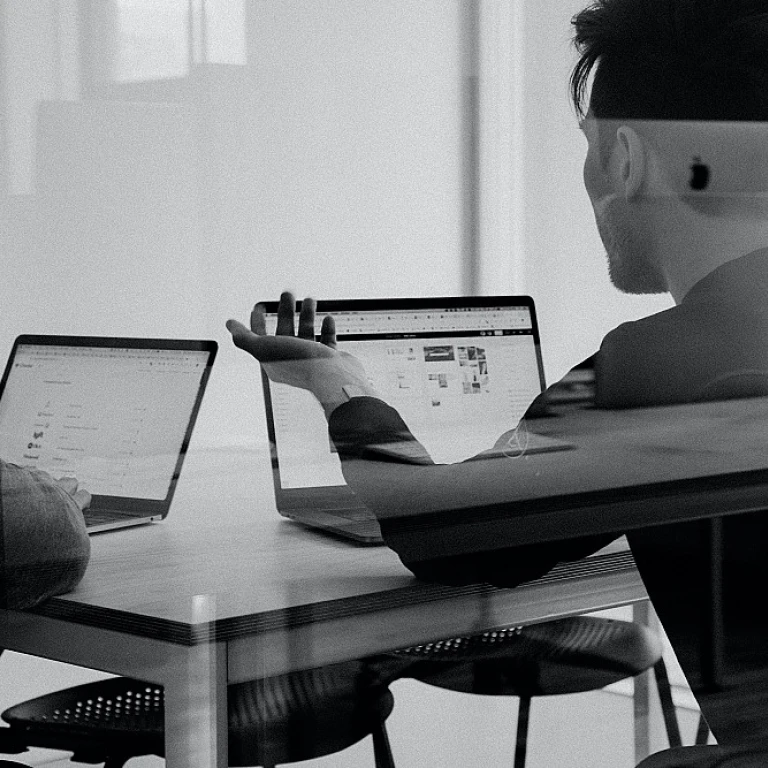Understanding AI's Role in Private Investigation
The Integration of AI into Private Investigation
The integration of artificial intelligence into private investigations is transforming the way private investigators operate. By leveraging AI technologies, investigators can now access digital tools that allow for more efficient and comprehensive data analysis, surveillance, and investigations. While traditional methods have relied heavily on human insights and time-consuming processes, AI enhances these aspects by providing real-time intelligence and predictive analytics.
AI's capacity to process vast amounts of data from public records and social media platforms means that private investigators have more resources at their disposal. For example, facial recognition technology can be employed in fraud investigations to quickly identify individuals across various platforms. This level of digital analysis not only speeds up investigations but also increases the accuracy of the findings.
Moreover, AI technology plays a crucial role in keeping up with evolving legal and social standards within private investigations. As AI continues to be refined, its application in analyzing complex datasets grows, enabling private detectives to uncover hidden patterns that may not be immediately obvious through traditional methods.
The promise of AI also introduces certain challenges and ethical considerations that need to be addressed. As AI becomes more embedded in everyday investigation services, questions arise about data privacy and the potential for misuse. While AI provides substantial benefits, it is essential to balance these with the human element that remains at the core of private investigations.
For more insights into how AI is shaping modern background checks, you can explore the
future of tailored background checks and how this technology is evolving.
Current Trends in Background Checks
Current Developments and Methodologies
The landscape of background checks in private investigations is rapidly evolving, driven by the integration of artificial intelligence (AI) and advanced technologies. Established methods have traditionally relied on extensive surveillance and the scrutinizing of public records. However, recent trends point towards a transformation in how data is gathered and analyzed. In particular, the use of digital tools like facial recognition, predictive analytics, and machine learning are shaping the industry.
Private investigators are increasingly incorporating AI-powered screening tools into their workflows. These advancements are revolutionizing the way investigations are conducted, allowing for deeper insights and more precise results. Furthermore, AI's proficiency in processing vast amounts of data enables investigators to handle complex cases with greater efficiency, saving both time and resources.
The advent of social media and digital footprints has added new dimensions to background checks. Investigators will often utilize sophisticated AI techniques to analyze these digital trails, offering an additional layer of intelligence that was previously inaccessible. This not only enhances the accuracy of background checks but also empowers private detectives to predict future behaviors through data analysis.
Although these technological advancements provide significant advantages, the role of human insight remains crucial. AI serves as a powerful ally in data analysis, but the intuition and critical thinking processes of human investigators are indispensable when interpreting nuanced details in intelligence investigations and fraud investigations.
Benefits of AI in Background Checks
The Transformative Power of AI in Background Checks
Artificial intelligence is revolutionizing the way background checks are conducted, bringing numerous benefits that enhance both efficiency and depth. AI tools are capable of handling vast amounts of data swiftly, allowing private investigators to conduct more thorough checks in a fraction of the time traditionally required. This capacity to process data rapidly means that digital tools can pull information from various sources, such as public records and social media, making investigations more robust.
One significant advantage of AI is its ability to provide real-time insights. This feature is particularly beneficial in high-stakes environments like fraud investigations, where time is of the essence. Advanced technologies such as facial recognition and predictive analytics empower investigators with powerful insights that traditional methods may overlook.
AI also enhances the quality of background checks by minimizing human errors. Machine learning algorithms can identify patterns and anomalies that may not be immediately apparent to human eyes, offering a second layer of analysis that boosts the accuracy of findings. By employing AI, private investigators can provide more reliable and comprehensive services to their clients.
Moreover, the digital intelligence gathered through AI-driven background checks helps streamline private investigation processes. This not only reduces operating costs but also allows private detectives to focus their efforts where human intuition and interpretation are most needed. With AI managing the data-heavy aspects of checks, investigators will have more time to dedicate to the nuanced elements of intelligence investigations.
The incorporation of AI in background checks isn't just about efficiency—it's a strategic enhancement that augments the expertise and insights of private investigators. As we continue to see advancements, the way digital identity verification is approached will undoubtedly transform, further solidifying AI as a critical component in modern investigations. For those interested in navigating these future developments in digital identity verification, additional insights can be found here.
Challenges and Ethical Considerations
Addressing the Complexities and Ethical Challenges
The integration of artificial intelligence in private investigations brings forth both opportunities and challenges. While AI-driven tools enhance the efficiency of background checks, they also raise important ethical and privacy concerns.
Private investigators now have access to vast amounts of digital data, but the responsibility of managing and analyzing this data falls on them. One of the main challenges is ensuring that the use of AI aligns with principles of privacy and doesn’t infringe on individuals' rights. Ethical considerations must be at the forefront, particularly when dealing with sensitive data collected through public records or social media platforms.
Moreover, the accuracy of AI systems is crucial in private investigations. While technology such as machine learning and predictive analytics can potentially identify patterns and provide valuable insights, there is still a need for human oversight to avoid errors. Misinterpretations or biases in AI algorithms can lead to serious implications, especially in intelligence investigations or fraud investigations.
Facial recognition and real-time surveillance tools are powerful, yet they also add another layer of ethical complexity. These technologies can automate tasks traditionally performed by human investigators, but they might lack the human intuition required to make nuanced decisions. Some argue that these tools could lead to an over-reliance on technology, potentially sidelining the investigator's expertise.
Ultimately, private investigators and organizations must work to strike a balance between harnessing the benefits of AI and maintaining ethical standards. As AI continues to evolve in the realm of private investigations, ongoing dialogue and regulation will be essential to ensure that these powerful tools are used responsibly and effectively.
Case Studies: AI in Action
Real-World Applications of AI in Private Investigations
Artificial intelligence continues to revolutionize the landscape of private investigations, offering dynamic solutions for complex scenarios. In this section, we'll explore tangible examples of how AI is actively applied in this field, offering both private investigators and clients more efficient and effective methods to conduct investigations.
One compelling application of AI is in the real-time analysis of vast amounts of data. For instance, AI algorithms facilitate the rapid processing of digital tool outputs, such as surveillance footage, public records, and social media activities. Through facial recognition technology, private detectives can quickly identify subjects across various platforms, saving time and effort typically spent on manual searches.
Predictive analytics is another area where AI shines. By leveraging machine learning algorithms, private investigators can anticipate patterns and potential risks in fraud investigations, ultimately enhancing intelligence gathering and analysis. These AI-driven insights bolster the human element by allowing investigators to focus on the nuances and subtleties that technology alone might overlook.
Furthermore, AI’s ability to cross-reference information from multiple sources in real-time enables a more comprehensive approach to private investigations. This attribute is particularly beneficial in background check services, where data from numerous databases and social platforms can be integrated to provide a full, robust view of an individual's history and behaviors.
In some cases, AI tools have proven invaluable in assisting law enforcement with intelligence investigations as well. By processing large amounts of data, AI can highlight trends and anomalies that might indicate criminal activity, thus enabling quicker resolutions.
Ultimately, these case studies illustrate that the role of artificial intelligence in private investigation is not just theoretical but a practical innovation reshaping how private investigators operate. As technology continues to advance, the collaboration between human expertise and AI will undoubtedly redefine standards within the industry.
Future of AI in Private Investigation
AI as a Key Component in the Next Generation of Investigative Methods
The future of artificial intelligence in private investigations is shaping up to be revolutionary. As the landscape of investigations continues to evolve, AI is positioned to become an indispensable tool for private detectives and law enforcement alike. Its integration into surveillance and investigative methods is driven by its ability to process vast amounts of data more accurately and efficiently than ever before.
AI's potential in enhancing background checks lies in its application of machine learning, facial recognition, and predictive analytics. These tools enable investigators to conduct more thorough analyses and derive deeper insights from data. For instance, real-time insights generated by AI can streamline data analysis, making it possible to detect anomalies in public records or flag risks in social backgrounds almost instantaneously.
As private investigations pivot towards digital solutions, AI will also play a pivotal role in managing digital data and providing intelligence for more complex investigations. Its ability to filter through social media for pertinent information and connect digital dots that a human investigator might miss, exhibits how AI is not just a supplementary tool but a core component of modern intelligence investigations.
Moreover, the future holds promise for AI to facilitate proactive fraud investigations through sophisticated data surveillance techniques. This may redefine how private investigative services are offered, transitioning from reactive to more preventative measures, potentially saving time and resources for investigators.
Nevertheless, the ethical and practical challenges discussed earlier will remain crucial as the real-time usage of AI becomes more prevalent. Privacy concerns, data accuracy, and legal implications must be navigated carefully to harness the full potential of AI responsibly. As we advance, the collaboration between AI technology and human oversight will be key to maintaining a balanced and effective approach in private investigations.








